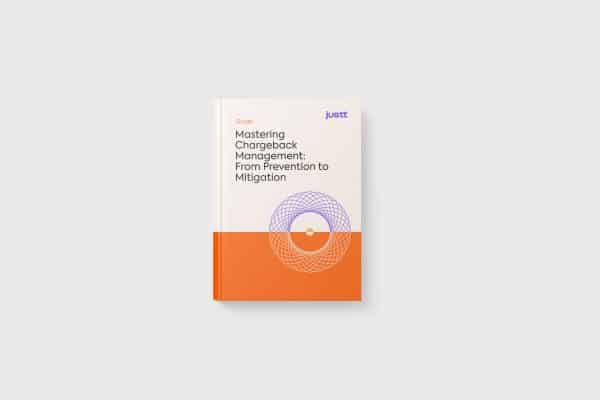Chargebacks are a fact of life for any business that accepts card payments. But that doesn’t mean they have to be a recurring source of revenue loss, or an operational burden for your team.
As dispute volumes increase (expected to reach 324 million transactions annually by 2028), so do the challenges of managing them. Chargeback management tools and software aim to alleviate these pressures and make a measurable difference in how efficiently disputes are handled, including how often they’re won, and to produce the reporting and insights merchants need to prevent them in the first place. Additionally, such tools aim to reduce the manual labor associated with chargeback disputes (estimated at 20-60 minutes per chargeback) and therefore make chargeback recovery more profitable.
Summary
- Chargeback management tools help merchants identify, respond to, and analyze payment disputes.
- Options range from self-serve software that helps create evidence documents to fully automated solutions.
- Choosing the right tool(s) depends on dispute volume, internal resources, and business complexity.
- The best tools do more than streamline existing processes. They help recover more revenue with less manual effort.
The scope of the problem
Juniper Research projects that merchants will lose over $100 billion to fraudulent transactions by 2029, much of that driven by first-party (a.k.a. friendly) fraud. In addition, many customers now find it easier to submit a chargeback than to navigate merchants’ refund processes.
What is a chargeback management tool?
A chargeback management tool is a system or software that helps merchants track and respond to incoming chargebacks. It typically integrates with your payment processors, order systems, and CRM to collect the data (or evidence) needed to fight disputes (things like receipts, shipping confirmations, and customer communication logs). In some cases, it also connects to 3rd party systems (such as shipping) to offer additional evidence to support the chargeback dispute.
More advanced platforms can auto-generate responses based on dispute reason codes, evidence, the issuer, industry segment and more. Others go a step further, flagging disputes that are likely to lose, analyzing patterns, or adapting strategy by issuer.
Types of chargeback tools, compared
Here’s how the two major categories of chargeback tools typically stack up:
| Feature/functionality | Software platform | Automated chargeback management (like Justt) |
| Case tracking dashboard | ✔️ | ✔️ |
| Integration with PSPs | ✔️(varies by vendor) | ✔️(typically broader) |
| Automated evidence assembly | Sometimes | Yes |
| Dispute submission and chargeback acceptance | Manual or semi-automated | Fully automated |
| Strategy per issuer/reason code/industry | Rare | Yes |
| Reporting and analytics | Limited | Often included |
| Ongoing optimization | Rare | Yes (continuous improvement based on A/B testing) |
| Labor effort required | Moderate to high | Low |
| Recommendations based on likelihood to win disputes and their ROI | Rare | Yes |
| Email notifications to chargeback team | Sometimes | Yes |
Note: Table based on common vendor offerings as of 2025. Always verify actual capabilities during evaluation.
What to look for when evaluating chargeback management software
Whether you’re looking to replace a legacy solution or evaluating tools for the first time, there are a few signals that it’s time to make an investment. As dispute volume grows, so does the time your team spends tracking deadlines, gathering evidence and documentation, and trying to make sense of outcomes. Friendly fraud alone can account for a large share of lost revenue, especially for businesses selling digital goods or subscriptions. If your team is regularly spending hours per week on disputes with little clarity on what’s working, it may be time to look for support.
Another common issue is when the inability to respond to all chargebacks results in segmentation of some of them and disputing only the easy ones. This leads to a sense of winning (the disputes that were chosen) when in practice, the more difficult disputes could have been submitted and won, too, leaving money on the table.
Tools also become essential when operations get more complex. If you’re working with multiple payment processors, selling across regions, or seeing inconsistent outcomes from issuer to issuer, a chargeback solution can bring needed consistency. The right one will reduce manual work, surface useful data, and help you understand (rather than just react to) what’s driving disputes.
Core capabilities to prioritize
- Automation – Can the system assemble evidence using your existing order and customer data?
- Flexibility – Does it handle your specific processors, dispute types, and workflows
- Customization – Does it use dynamic arguments to create unique evidence and representations to ensure you win?
- Performance transparency – Do you know your win rate, average recovery value, and submission times?
- Scalability – Can the solution grow with your business, or will it create bottlenecks down the line?
- Optimization – Are results constantly optimized and AB tested, on an argument by argument level (not by template)
The value of automation
Software makes processing faster. But if it requires manual work and reviews, it doesn’t always make outcomes better and your labor may cost too much and make disputing a poor ROI.
If your dispute volume is high or if you’re managing multiple regions, issuers, or fraud patterns, a software point solution may not have the strategic insight or issuer-level nuance to move the needle.
Automated solutions, on the other hand, treat chargeback recovery as an evolving system, not just a workflow to automate.
Justt combines the speed of automation with the rigor of a strong and customized dispute strategy. We integrate with your stack, tailor evidence by issuer and reason code, and provide transparent, real-time reporting.
What makes us different is that we don’t just help you submit faster. We actually help you win more, while continuously learning from every outcome.
If you’re ready to take a more structured, automated, and scalable approach to dispute optimization, Justt can help. Our platform combines automation, customization, and deep issuer insight to manage chargebacks end-to-end, and show you exactly how it’s performing. See a demo.
FAQs
What is a chargeback tool?
It’s software that helps merchants track, respond to, and analyze credit card disputes. Some tools are self-serve; others manage the process on your behalf.
Do I need a chargeback tool if my payment processor handles disputes?
Processors forward disputes, but they rarely manage them. A dedicated tool gives you structure, automation, and better chances of recovery.
What’s the difference between chargeback software and managed solutions?
Software helps internal teams handle disputes. Managed solutions take over the process and optimize results (especially useful at scale).
Can these tools reduce chargebacks overall?
Yes, but mostly indirectly. Some offer pattern detection that helps prevent future disputes when paired with strategic changes. The best also close the loop by sharing insights with fraud, CX, and ops teams.



